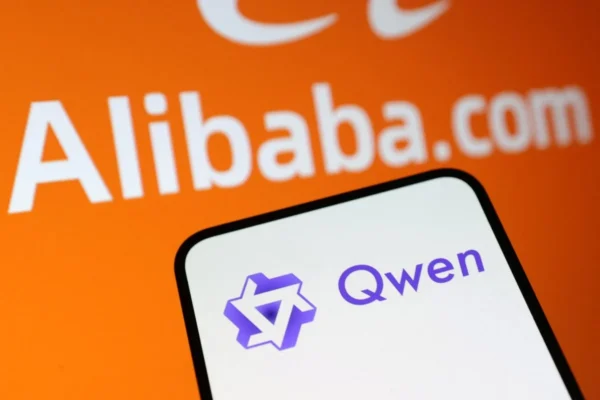In the escalating AI arms race between the United States and China, recent developments such as Manus AI and Alibaba’s QwQ-32B highlight China’s rapid progress. With Chinese Tech firms churning out new models almost daily and the Chinese government pouring massive funding into the industry, the long-standing U.S. dominance in this field is increasingly under threat.
In response, U.S. tech giants such as OpenAI, Google, and Meta have begun shifting strategies—making previously paid services freely available or open-sourcing parts of their models—to maintain their competitive edge. However, China’s open-source approach and aggressive pricing strategies are reshaping the global AI landscape, making advanced AI more accessible than ever.
China Emerging as an AI Powerhouse: Beyond LLMs to Advanced Reasoning Models
China is making significant progress in AI innovation, narrowing the gap with the U.S. in areas such as reasoning models, autonomous AI agents, and multimodal systems. Chinese companies are increasingly positioning themselves as key players in the global AI landscape. Here are some recent AI models that have garnered significant attention.
Alibaba’s QwQ-32B: Compact Yet Powerful Reasoning Model

While China pushes the boundaries of AI autonomy, it is also proving its strength in traditional AI performance benchmarks. Alibaba unveiled QwQ-32B, a new compact reasoning model that challenges the notion that bigger always means better in the world of AI.
Unlike massive models that require extensive computational resources, QwQ-32B focuses on efficiency without sacrificing performance. With just 32 billion parameters, it outperforms models of similar size in reasoning and problem-solving tasks, making it a strong competitor to OpenAI’s GPT-4 and Google’s Gemini models. This development highlights China’s advancements in AI architecture, improving accessibility and efficiency of AI models. According to Alibaba Cloud, QwQ-32B has been engineered with cutting-edge techniques to enhance inference speed and reasoning capabilities.
Manus AI: The Rise of Autonomous AI Agents

The DeepSeek moment was just the beginning; China’s AI investment in technology is starting to pay off. As some refer to it as the second DeepSeek moment, Manus AI, developed by Monica AI, suggests that China is not just competing in the LLM space but actively pioneering AI agents capable of independent reasoning and execution. Rather than simply responding to prompts, this AI system is built to function as an autonomous agent capable of carrying out multi-step tasks with minimal human supervision. One review even described it as an “AI intern that never gets tired.”
While Manus AI presents itself as a breakthrough in autonomous AI agents, some point out that it could just be a hype, and that their experiences with Manus haven’t been as positive as expected. What makes it noteworthy, however, is that it brings to life concepts that had previously remained theoretical at companies like OpenAI and Google. By taking these frameworks and integrating them into a functional system, Manus AI provides a glimpse into the potential of more capable AI agents—though the extent of its autonomy remains a subject of debate.
U.S. Plays Defense
As China rapidly scales its AI capabilities, U.S. tech giants and policymakers are stepping up their efforts to maintain leadership in the AI race. Their responses include expanding access to AI services, embracing open-source models, and implementing stricter trade restrictions on key technologies.
Expanding Free AI Services
To solidify their market dominance, U.S. AI companies are making their products more accessible. OpenAI has taken significant steps to retain users by introducing a limited free preview of its Advanced Voice Mode, a feature previously exclusive to Plus subscribers. This feature allows for more natural, free-flowing conversations with ChatGPT. Meanwhile, Google Cloud has released a public preview version of Gemini Code Assist for individuals for free. By lowering the barrier to entry, these companies aim to maintain their influence in global AI adoption and the developer ecosystem.
Open-Source Strategies
Signs of a shift toward open-source AI are emerging. Until recently, Meta was the only major U.S. tech company actively championing open-source AI. However, OpenAI, which has long focused on proprietary models, has now recognized the need for a different open-source strategy—a notable shift in stance. Sam Altman admitted that OpenAI has “been on the wrong side of history” and acknowledged the necessity of change, though open-sourcing is not its top priority at the moment.
Government Intervention and Trade Restrictions
On the policy front, the U.S. government is taking a defensive stance by tightening export controls on AI-related semiconductor technology. Restrictions on advanced chips from NVIDIA have directly impacted China’s AI industry, limiting access to the computing power necessary for training cutting-edge models. Additionally, Washington is increasing funding for domestic AI research to stay competitive in the AI race.
The Growing Importance of Ethical AI data
As the race for AI supremacy escalates, securing high-quality data has become the next competitive frontier. AI models rely on vast amounts of diverse and accurate data, making data acquisition a critical factor in determining long-term leadership. However, as competition intensifies, concerns over data privacy, copyright infringement, and bias are also coming to the forefront.
In response, governments and industry leaders are tightening regulations to ensure responsible data collection and prevent unethical practices. This shift is driving AI companies to prioritize transparency and compliance, as ethically sourced data is no longer just an option—it’s a necessity for sustainable AI development.
At Flitto, we actively provide ethically sourced, high-quality language data, enabling AI developers worldwide to train their models with confidence. Our commitment to transparency and compliance ensures that AI companies can build reliable models without ethical concerns. By upholding responsible data acquisition standards, we contribute to the advancement of AI technologies in an era of intense global competition.
